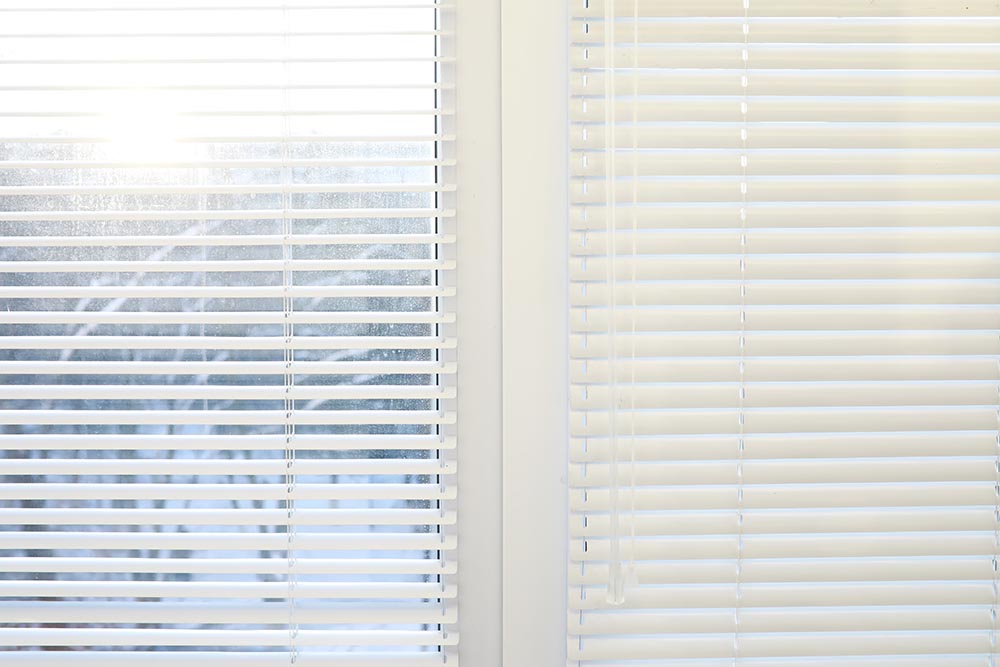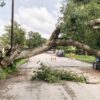Rodent control is a critical aspect of maintaining a healthy and safe environment in both homes and businesses.
In Australia, where rodents like the Norway rat pose significant health and safety risks, effective control measures are essential. While professional pest control services offer comprehensive solutions, many people opt to tackle rodent problems themselves using DIY methods. Understanding both professional and DIY approaches helps you make informed decisions about managing rodent infestations.
In this article, we’ll explore why rodent control is necessary and provide practical advice on how to handle these pests on your own.
Why Do You Need Rodent Control?
Rodent control is crucial for maintaining a safe and healthy environment in both residential and commercial settings. Rodents, including rats and mice, can cause a range of problems that impact not only property but also health and safety. Here’s why rodent control is essential and how it can benefit you:
Health Risks
Rodents are notorious carriers of diseases that can affect humans. They can transmit diseases such as leptospirosis, hantavirus, and salmonella. These diseases can spread through direct contact with rodents, their urine, droppings, or even through contaminated food and surfaces. For example, hantavirus can be contracted by inhaling dust particles that contain rodent droppings or urine.
Leptospirosis is a bacterial infection that can be contracted through contact with water contaminated by rodent urine. Keeping rodents away helps reduce the risk of these potentially serious health issues.
Property Damage

Rodents have a habit of gnawing on things, and their sharp teeth can cause significant damage. They may chew through electrical wires, insulation, and wooden structures, which can lead to costly repairs and potential fire hazards.
Chewed electrical wires, in particular, pose a serious risk as they can cause short circuits and electrical fires. Additionally, rodents can damage stored goods, furniture, and personal items by nesting and defecating in them.
Contamination
Rodents can contaminate food and surfaces with their droppings, urine, and fur. This can lead to foodborne illnesses and make your home or business environment unhygienic.
In commercial settings like restaurants or food processing facilities, rodent contamination can result in spoiled products and can even lead to fines or closures due to health and safety regulations.
Behavioural Issues
Rodents can be quite disruptive. Their constant scurrying and squeaking can create noise pollution, disturbing your peace and sleep. Additionally, if they infest your home or business, they might make their way into areas like walls or ceilings, making it difficult to locate and address the problem without professional help.
Prevention and Control
Effective rodent control involves a combination of prevention and intervention strategies. Here are some steps to help keep rodents at bay:
- Seal Entry Points: Rodents can enter through tiny gaps and holes. Seal these entry points with materials like steel wool or caulk to prevent them from gaining access.
- Maintain Cleanliness: Keep your environment clean and free of food scraps. Regularly clean up crumbs and store food in airtight containers.
- Use Traps and Baits: Rodent traps and baits can help manage an existing infestation. Be sure to use them in strategic locations to increase their effectiveness.
- Professional Pest Control: For severe infestations, professional pest control services may be necessary. Experts have access to advanced tools and techniques to effectively eliminate rodents and prevent future issues.
What is the Most Dangerous Rodent in Australia That Needs to Be Controlled?
In Australia, the most dangerous rodent that requires control is the Norway rat (Rattus norvegicus), also known as the Norwegian rat, brown rat, common rat, street rat, sewer rat, wharf rat, and Hanover rat. Here’s why this particular rodent is a significant concern:
Health Risks
- Disease Transmission: Norway rats are known carriers of several diseases that can affect humans. They can transmit leptospirosis, a bacterial infection that can lead to liver damage, kidney failure, and even death if untreated. Additionally, these rats can spread salmonella and tularemia, both of which can cause severe gastrointestinal and systemic issues.
- Parasites: Norway rats often carry fleas, ticks, and mites, which can infest humans and pets. These parasites can transmit other diseases and cause skin irritations.
Property Damage
- Structural Damage: Norway rats are notorious for their ability to gnaw through various materials, including wood, plastic, and even electrical wires. This gnawing can lead to significant structural damage and increase the risk of electrical fires.
- Food Contamination: These rats often invade food storage areas, contaminating food supplies with their droppings, urine, and fur. This contamination poses health risks and can lead to substantial financial losses, particularly in commercial food industries.
Behavioural Characteristics
- Aggressive Behavior: Norway rats can be aggressive, especially when cornered or threatened. Their aggressive behaviour can increase the risk of bites, which can lead to infections.
- Rapid Reproduction: Norway rats reproduce quickly, with a single pair potentially producing several hundred offspring in a year. This rapid reproduction rate makes them difficult to control once an infestation takes hold.
Control Measures
- Sanitation: Keeping your environment clean and removing food sources is crucial in preventing Norway rat infestations. Store food in airtight containers and maintain a clean living space.
- Exclusion: Seal any entry points in buildings to prevent rats from gaining access. Use materials like steel wool or metal sheeting to block potential entryways.
- Traps and Baits: Using traps and baits can help control and reduce Norway rat populations. Place these strategically to maximize their effectiveness.
- Professional Pest Control: For severe infestations or if you need help managing these pests, professional pest control services can provide comprehensive solutions to eliminate Norway rats and prevent future problems.
In summary, the Norway rat is the most dangerous rodent in Australia due to its health risks, property damage potential, and rapid reproduction. Effective control involves a combination of sanitation, exclusion, traps, and, if necessary, professional pest management services.
Can You DIY Rodent Control?
Yes, you can handle some rodent control measures yourself, but the effectiveness of DIY methods depends on the severity of the infestation and your ability to implement them correctly.
Here’s a guide to DIY rodent control:
1. Seal Entry Points
What to Do: Inspect your home for gaps, cracks, and holes where rodents might enter. Common entry points include around pipes, vents, and foundations.
How to Seal: Use materials like steel wool, caulk, or expandable foam to close these openings. Rodents can chew through softer materials, so make sure the sealant is durable.
2. Maintain Cleanliness
What to Do: Rodents are attracted to food and clutter. Keeping your home clean can help prevent them from moving in.
How to Clean: Regularly sweep floors, wipe down surfaces, and store food in airtight containers. Don’t leave pet food out overnight and clean up crumbs and spills promptly.
3. Use Traps
Types of Traps:
- Snap Traps: These are quick and effective for killing rodents. Place them along walls and in areas where you’ve seen rodent activity. Bait them with food like peanut butter, cheese, or bacon.
- Live Traps: These capture rodents alive so you can release them elsewhere. Be sure to check these traps frequently to avoid distress to the trapped animal.
Placement Tips: Place traps perpendicular to walls and near signs of rodent activity. Avoid placing them in open spaces where rodents may not feel safe.
4. Bait Stations
What to Do: Use rodent bait stations to attract and kill rodents. These stations contain poison that rodents eat, which then kills them.
How to Use: Place bait stations in areas where you’ve seen rodent activity but out of reach of pets and children. Follow the manufacturer’s instructions for placement and safety.
5. Ultrasonic Repellents
What They Are: Ultrasonic devices emit high-frequency sound waves that are unpleasant for rodents but inaudible to humans and pets.
How to Use: Plug these devices into electrical outlets in areas where you suspect rodent activity. They may help repel rodents, although their effectiveness can vary.
6. Natural Deterrents
What They Are: Some natural substances can repel rodents, such as peppermint oil, cayenne pepper, or vinegar.
How to Use: Soak cotton balls in peppermint oil and place them in areas where rodents are likely to enter. You can also sprinkle cayenne pepper or vinegar around entry points.
When to Call a Professional
While DIY methods can be effective for minor rodent issues, you might need to call Pest Control Brisbane.com in case of:
- The Infestation is Severe: If you have a large number of rodents or can’t control the problem with DIY methods, a professional pest control service can provide more comprehensive solutions.
- Safety Concerns: If you’re uncomfortable handling traps or poisons, or if you have pets or children that might be at risk, professional pest control can ensure safety and effectiveness.
- Ongoing Issues: If you continually have rodent problems despite your best efforts, it may be time to consult a professional who can address the root cause and provide long-term solutions.
Conclusion
It’s crucial to take steps to keep rodents in check to protect your health, home, and peace of mind. While calling in Pest Control Brisbane.com is a surefire way to tackle a major infestation, you can often handle rodent issues yourself with some smart DIY tactics.
Knowing when to try these strategies and when it’s time to call for backup is the secret to maintaining a secure, rodent-free space.
So, whether you go it alone or get professional assistance, acting swiftly and effectively is essential to dodge the hazards and headaches rodents bring.

















